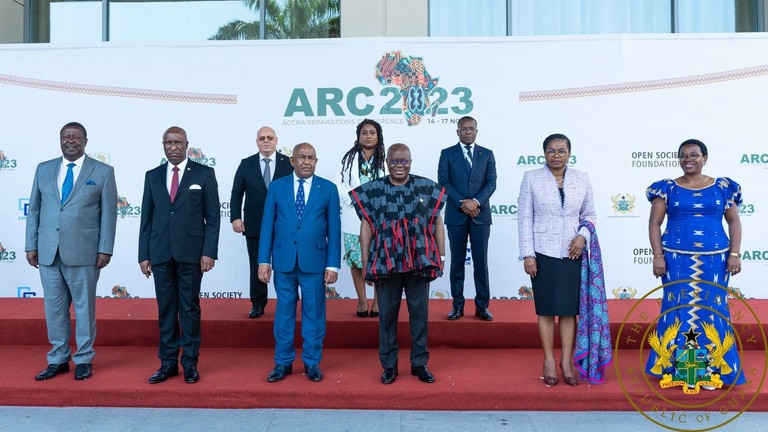
Reparative justice for the continent and descendants of slaves is an issue that can no longer be ignored, Ghana’s president has said.
Ghanaian President Nana Akufo-Addo is hosting a global summit to facilitate dialogue and produce an African-led action plan to seek reparations for historical injustices dating back to the slave trade and colonialism eras.
The four-day Accra Reparations Conference began on Tuesday in Ghana’s capital with the president demanding financial restitution from the West, which he argued is long overdue as compensation for the horrors of the slave trade.
“It is time for Africa, thirty million of whose sons and daughters had their freedoms curtailed and sold into slavery, to also receive reparations. No amount of money can restore the damage caused by the transatlantic slave trade and its consequences… But surely, this is a matter that the world must confront and can no longer ignore,” Akufo-Addo said.
“And even before these discussions on reparations conclude, the entire continent of Africa deserves a formal apology from the European nations involved in the slave trade,” he added.
For decades, African and Caribbean governments and activists have advocated for monetary compensation and other forms of accountability for slavery and the colonization of their countries.
More than two million Africans are estimated to have died en route from their countries to the Americas, where slaves were used for forced labor between the 15th and 19th centuries. The transatlantic slave trade has been labeled by the UN as the largest ever forced migration.
Lloyd’s of London, a British insurance company, recently announced a £52 million ($63.8 million) investment in a reparation program after research revealed that it had played a “significant role” in facilitating the 300-year slave trade.
Earlier this year, The Guardian newspaper’s owner apologized in response to a report that discovered a historical link between the media group’s 19th-century founders and slavery. The Scott Trust, the British company that owns The Guardian, announced a ten-year restorative justice program worth more than £10 million (US$12.3 million).
In September, UN Secretary-General Antonio Guterres published a report advising Western countries on an array of measures, including financial compensation, for colonialism and the enslavement of people of African descent despite the length of time that had passed.
Ghana’s president, who had previously blamed the current economic and social problems of African nations on colonial exploitation and slavery, has called on African leaders to unite with Caribbean nations that are leading the campaign for reparative justice for descendants of the victims of slavery.
“We in Africa must work together with them to advance the cause,” Akufo-Addo said at the conference, which brought together heads of state and governments from the continent and the diaspora, as well as African Union leaders.